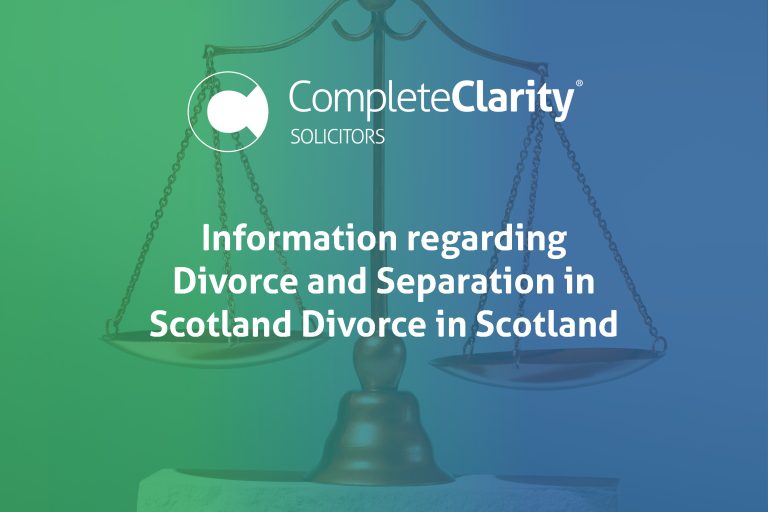The most delicate and emotive matters that we, as family lawyers, assist our clients with our child contact and residence arrangements, ensuring adherence to parental responsibilities. We are aware that the welfare and best interests of the children should always be the top priority when parents separate or divorce. We are committed to assisting you in achieving a joyful, healthy, and rational arrangement.
What is the difference between child contact and residence?
Child residence: This term denotes the primary domicile in which the child will reside following the separation or divorce of the parents. The Scots law mandates that only one parent has “residence,” regardless of whether the infant spends an equal amount of time with both parents.
Child Contact: This refers to the arrangement for the child to spend time with the non-resident parent with whom they do not “reside.” In general, it will entail visits, overnight stays, holidays, and other forms of indirect contact, such as calls, texts, and video chats, although the specifics will vary from case to case.
Your Rights as a Parent–Child Arrangement Law in Scotland
As a parent, you are legally entitled to participate in your child’s life and to have a voice in the significant decisions that are made, exercising your parental rights and responsibilities. Nevertheless, the child’s best interests will always be prioritised over these liberties.
An Overview of your Rights
Right to partake in Decisions: As a parent, you are generally entitled to partake in significant decisions regarding your child’s upbringing, such as those concerning education, health, religion, and living space.
Right to Maintain Regular Contact with Your Child: If you are the parent of a child who does not reside with you, you are still entitled to maintain regular contact with them. This could take the form of consistent visits, phone calls, or other forms of communication, contingent upon the specific circumstances.
You have the right to seek assistance from the courts if you are experiencing difficulty in maintaining these rights, such as contacting your child. The family courts are intended to address disputes concerning minors.
Your Duties as a Parent
As the adage goes, “rights come with responsibilities.” You must comprehend and fulfil your responsibilities in both the emotional and practical facets of your child’s life. In general, your obligations as a parent are as follows:
Protecting the Child’s Best Interests: This is paramount in all child arrangements and contact decisions. The primary obligation of both parents is to guarantee their child’s health and well-being, fulfilling their parental responsibilities. This encompasses the provision of emotional support, the preservation of stability, and the formulation of decisions that are in the child’s best interest.
Fostering a Positive Relationship: Children need to have healthy relationships with both of their parents. Even though the parents no longer reside together, they should refrain from engaging in disparaging conversations about one another. It is typically in the child’s best interest to promote positive interactions between the child and the other parent.
Respecting the Agreements: It is crucial to adhere to the child contact and residence arrangements that have been established, provided that they are in the child’s best interest. This encompasses adhering to any commitments made, adhering to collection/drop-off times, and arriving for contact. Parents should endeavour to reach a consensus on alternative options as soon as possible if adjustments are necessary.
Collaboration with the Other Parent: Effective communication is essential for the success of any co-parenting arrangement. The child’s tension can be alleviated and effective communication channels can be established by being open and cooperative with the other parent. Mediation services may be implemented to enhance direct communication if it proves challenging.
What is the process for determining child contact and residence?
In the majority of instances, parents are encouraged to negotiate a settlement regarding contact and residence without the necessity of court intervention. If it is difficult to reach an agreement, it may be prudent to attempt to mediate the situation to determine whether an agreement can be reached. Nevertheless, if the parents are unable to reach a consensus and mediation is unsuccessful, the matter may be brought to court. A judge will make a decision based on the child’s best interests.
Conclusion
During emotionally fraught periods such as separation or divorce, it can be difficult to establish arrangements for the child. Although it is imperative to comprehend one’s rights, it is equally crucial to acknowledge the obligations that accompany them. The child’s welfare should always be the primary concern, and parents should endeavour to collaborate in a way that cultivates a positive, nurturing environment for their children whenever feasible. Seeking professional legal advice or mediation can frequently result in a more amicable and efficient resolution when disputes arise. Ultimately, both parents are responsible for the emotional development, stability, and safety of their child, even after a separation. We are available to assist you in this regard.
Get in Touch with our Child Law solicitors – Contact Agreements, Child Custody, child Arrangments
Solicitors can help with Child contact arrangements
Please do not hesitate to contact our experienced Family Law solicitors, and family law team if you wish to further discuss this matter. Our experienced family solicitors and team are here to help with contact or residence queries with our free initial consultation. Please contact us to make an appointment at 0141 433 2626 for expert legal advice. We have experience in court orders, contact order, and any child law advice.







